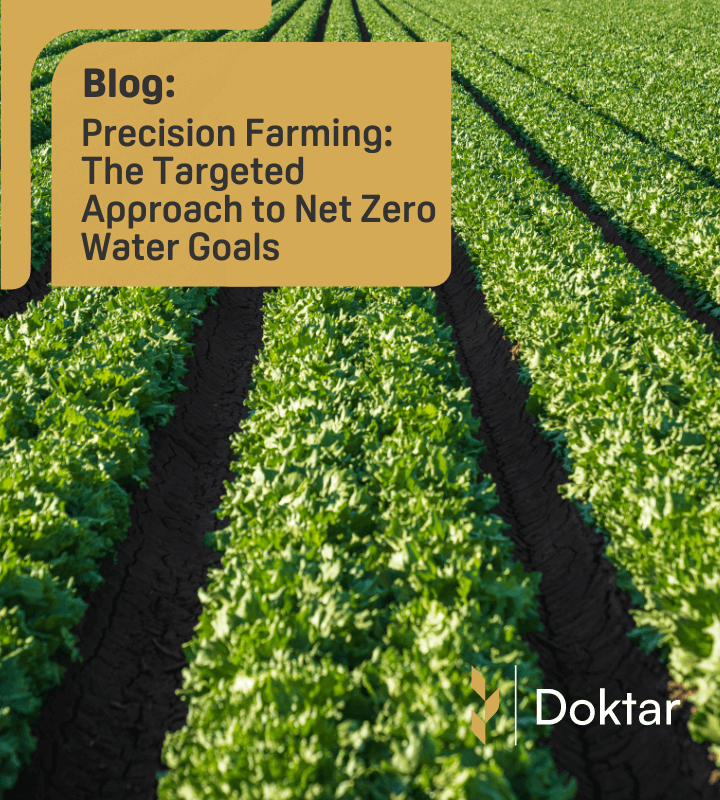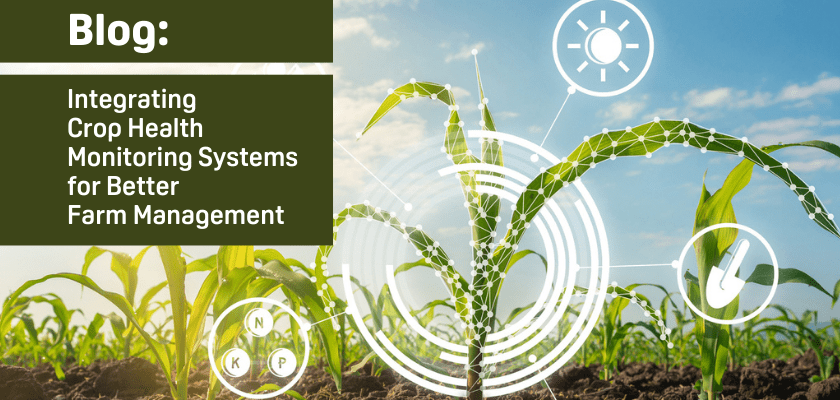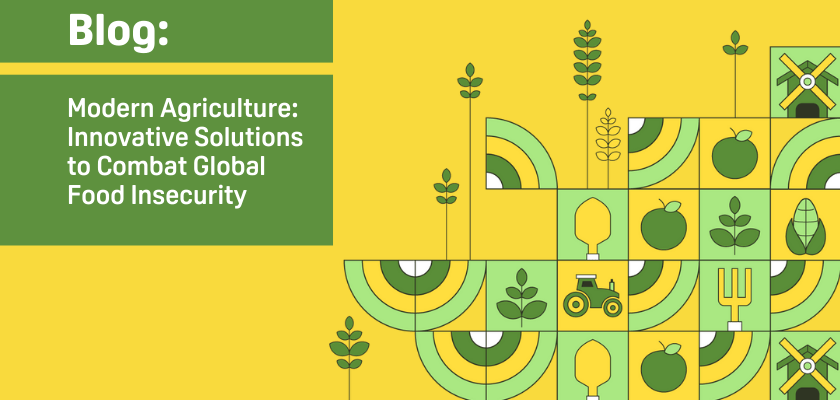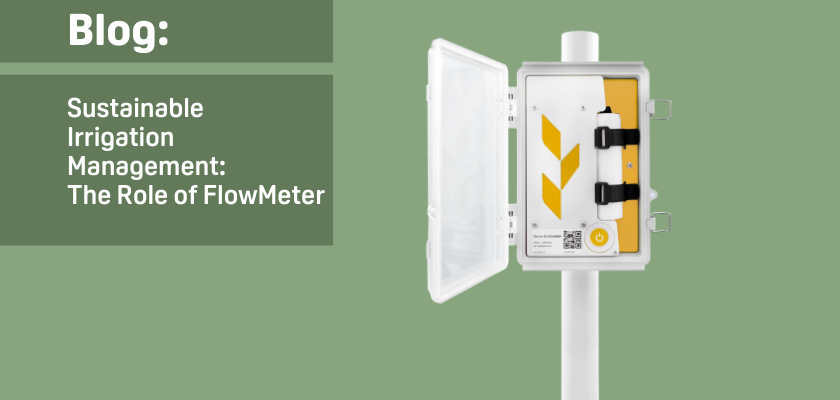

Precision Farming: The Targeted Approach to Net Zero Water Goals
Precision farming uses GPS, sensors, drones, and data analytics to optimize agriculture by providing real-time insights. Doktar enhances this through IoT devices like the Filiz sensor station and Orbit field scouting app, enabling precise resource use and sustainability, aiding farmers in achieving net zero water goals. These innovations lead to improved productivity and environmental benefits.
Published on 25 June 2024
What is Precision Farming?
Precision farming, also known as precision agriculture, is an advanced farming management concept that uses technology to monitor and optimize agricultural production processes. This approach involves using GPS, sensors, drones, and data analytics to collect detailed information about field conditions, crop health, and environmental factors. By leveraging these technologies, farmers can make informed decisions to enhance crop yields, reduce waste, and use resources more efficiently.
Through its innovative solutions and technologies, Doktar plays a significant role in advancing precision farming. By integrating IoT devices, satellite imagery, and AI models, Doktar provides farmers with real-time data and insights, enabling them to make precise and timely decisions. Products like the Filiz agricultural sensor station and the Orbit field scouting app exemplify Doktar’s commitment to enhancing precision farming practices, ultimately leading to improved productivity and sustainability in agriculture.
What Does Precision Farming Mean?
Precision farming means taking a detailed and data-driven approach to agriculture. It involves tailoring farming practices to the specific needs of different areas within a field rather than treating the entire field uniformly. This method enhances the efficiency of inputs like water, fertilizers, and pesticides, ensuring they are used where and when they are needed most. The goal is to increase productivity, improve sustainability, and achieve better environmental outcomes.
How Does Precision Farming Work?
Precision farming works by integrating several technologies to gather and analyze data about the farming environment. Here are the critical components involved:
- GPS Technology: GPS systems provide precise location data, which is essential for mapping fields, monitoring machinery, and guiding automated equipment.
- Sensors: Sensors like Doktar’s Filiz series monitor soil moisture, temperature, nutrient levels, and other critical parameters in real-time. This data helps farmers understand the specific needs of different parts of their fields.
- Drones and Satellite Imagery: Aerial and satellite imagery, used in Doktar’s Orbit field scouting app, provides a bird's-eye view of crop health and field conditions. These images can detect problems like pest infestations, water stress, and nutrient deficiencies early.
- Data Analytics: Advanced software analyzes the collected data to provide actionable insights. Doktar’s integrated AI models process this data to help farmers decide when and how much to irrigate, fertilize, or apply pesticides.
- IoT Devices: Internet of Things (IoT) devices connect various components of the precision farming system, enabling seamless data flow and integration. Doktar’s suite of IoT products ensures comprehensive monitoring and management of agricultural practices.
When Was Precision Farming Invented?
Precision farming began to take shape in the late 20th century with the advent of GPS technology and the increasing availability of data analytics tools. The concept gained momentum in the 1980s and 1990s as agricultural researchers and practitioners started exploring the potential of precision techniques to enhance productivity and sustainability. Today, precision farming is a well-established practice, continually evolving with advancements in technology.
What Are the Advantages of Precision Farming?
Precision farming offers numerous advantages that contribute to more efficient and sustainable agriculture:
- Resource Efficiency: By applying inputs like water, fertilizers, and pesticides more precisely, farmers can reduce waste and lower production costs.
- Higher Yields: Targeted interventions based on precise data help optimize crop growth and improve yields.
- Environmental Benefits: Reduced input use minimizes the environmental impact, such as nutrient runoff and pesticide contamination, promoting a healthier ecosystem.
- Better Risk Management: Early detection of issues through continuous monitoring helps farmers address problems before they escalate, reducing crop losses.
- Sustainability: Precision farming supports sustainable practices by conserving water, improving soil health, and reducing greenhouse gas emissions.
What Are Doktar’s Roles, Products, and Services Effective in Boosting Precision Farming?
Doktar plays a pivotal role in advancing precision farming through its innovative products and services. Here’s how Doktar contributes to precision farming:
- Filiz Series: The Filiz series of agricultural sensor stations monitors soil and weather conditions in real time. These IoT devices provide critical data on soil moisture, temperature, and humidity, helping farmers optimize irrigation and reduce water usage.
- Orbit Field Scout: Orbit is a comprehensive field scouting app that uses satellite imagery to monitor crop health, identify problematic areas, and provide irrigation advice. Its Variable Rate Application (VRA) tool is particularly effective in categorizing productivity zones within fields, allowing for precise input application based on soil type, topography, and yield potential.
- CropMap: CropMap transforms agricultural data into actionable market insights. With features like field boundary detection, crop type monitoring, and harvest prediction, CropMap ensures farmers have accurate and up-to-date information to make informed decisions. Its high accuracy (up to 98%) and capability to monitor 17 crop types make it an invaluable tool for precision farming.
- PestTrap: PestTrap uses AI-powered image recognition to detect and quantify pest populations in real time. This device helps farmers manage pest control more effectively, reducing the economic impact of pest-related crop damage and minimizing pesticide use.
- Integrated AI Models: Doktar’s AI models integrate data from various sources—satellite images, IoT devices, and hyper-local weather forecasts—to provide comprehensive agronomic advice. These models cover crop health monitoring, pest and disease management, fertilization, and agricultural market intelligence.
- FieldFlow Farm Management System (FMS): FieldFlow centralizes all farming operations, providing a single platform to manage crop cultivation areas, track activities, and analyze historical data. This system integrates seamlessly with Doktar’s digital tools, enhancing farm management efficiency.
Achieving Net Zero Water Goals with Precision Farming
Precision farming is instrumental in achieving net zero water goals by optimizing water use and reducing wastage. Here are some ways precision farming technologies contribute to water sustainability:
- Soil Moisture Monitoring: By continuously monitoring soil moisture levels, farmers can avoid over-irrigation and apply water only when necessary. This practice conserves water and ensures crops receive the right amount of moisture.
- Variable Rate Irrigation: Using data from soil sensors and weather forecasts, farmers can implement variable rate irrigation, which adjusts water application rates based on the specific needs of different field zones. This method maximizes water efficiency.
- Early Detection of Water Stress: Technologies like Orbit’s Plant Water Stress Map identify areas experiencing water stress, allowing farmers to take corrective action promptly. Early intervention prevents crop damage and optimizes water use.
- Rainwater Harvesting: Integrating rainwater harvesting systems with precision farming tools ensures that collected rainwater is used efficiently, further reducing dependence on external water sources.
- Evapotranspiration Tracking: By tracking evapotranspiration rates, precision farming systems provide accurate irrigation recommendations, ensuring water is used effectively to match crop needs.
Conclusion
Precision farming is revolutionizing agriculture by making it more efficient, sustainable, and data-driven. With the integration of advanced technologies like IoT devices, satellite imagery, and AI models, farmers can optimize resource use, enhance productivity, and achieve environmental sustainability. As a technology provider for precision agriculture, Doktar is at the forefront of this transformation, providing innovative solutions that support farmers in their journey towards net-zero water goals. By adopting precision farming practices, we can ensure a sustainable future for agriculture while conserving vital resources like water.

Integrating Crop Health Monitoring Systems for Better Farm Management
Crop health monitoring systems revolutionize modern agriculture by enabling real-time insights into plant health, reducing losses, and promoting sustainability. Tools like Doktar’s CropMap and Orbit integrate advanced technologies, empowering farmers with data-driven decisions. By enhancing efficiency and sustainability, these systems are essential for future-proofing agricultural operations.

Modern Agriculture: Innovative Solutions to Combat Global Food Insecurity
Modern agriculture combats global food insecurity with precision agriculture, sustainable practices, and biotechnology. Tools like IoT, automation, and crop innovations optimize resource use, enhance resilience, and ensure stable food supplies. By integrating smart technologies, agribusinesses address challenges like climate change and resource scarcity, paving the way for a sustainable food future.

Sustainable Irrigation Management: The Role of FlowMeter
Flow meters transform irrigation by enabling precise water measurement, reducing waste, and optimizing crop yields. Tools like Doktar’s FlowMeter empower farmers to enhance water-use efficiency, conserve resources, and lower costs. By integrating flow meters into modern farming, agribusinesses achieve sustainable irrigation solutions, address environmental challenges, and ensure long-term agricultural resilience.
